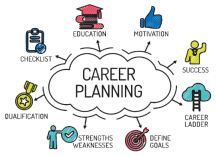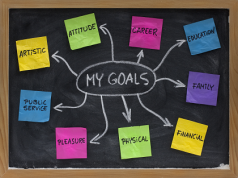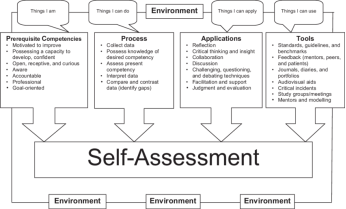Unit - 3
Self-Development and Assessment
Q1) What is time management? What are its benefits?
A1) “Time management” is the process of organizing and planning how to divide your time between specific activities. Good time management enables you to work smarter – not harder – so that you get more done in less time, even when time is tight and pressures are high. Failing to manage your time damages your effectiveness and causes stress. Time management refers to the way that you organize and plan how long you spend on specific activities.
Benefits of time management
Greater productivity and efficiency.
A better professional reputation.
Less stress.
Increased opportunities for advancement.
Greater opportunities to achieve important life and career goals.
Q2) Write short notes on personal memory and creativity.
A2) Personal Memory- Personal memory is the memory we have of particular items-people, places, things, events, situations-that we have personally experienced. The distinctive feature of this form of memory is not that it is memory of specific items as opposed to memory of facts and skills; we sometimes speak of remembering specific items without it being personal memory that is involved.
Creativity- Creativity is defined as the tendency to generate or recognize ideas, alternatives, or possibilities that may be useful in solving problems, communicating with others, and entertaining ourselves and others.
In order to be creative, you need to be able to view things in new ways or from a different perspective. Among other things, you need to be able to generate new possibilities or new alternatives.
Q3) Write short notes on rapid reading and complex problem solving.
A3) Rapid reading- is any of several techniques used to improve one's ability to read quickly. Rapid reading methods include chunking and minimizing sub vocalization. The many available speed-reading training programs include books, videos, software, and seminars. There is very little scientific evidence regarding rapid reading.
Taking notes; Complex problem solving, Creativity- Complex problem solving is a collection of self-regulated psychological processes and activities necessary in dynamic environments to achieve ill-defined goals that cannot be reached by routine actions. Creative combinations of knowledge and a broad set of strategies are needed. Complex problems usually involve knowledge-rich requirements and collaboration among different persons.
Q4) What is meant by career planning?
A4) Career planning- Career planning is the process by which one selects career goals and the path to these goals. The major focus of career planning is to enabling oneself to achieve a better match between personal goals and the opportunities that are realistically available. Career programmers should not concentrate only on career growth opportunities. Practically speaking, there may not be enough high-level positions to make upward mobility a reality for a large number of employees. Hence, career-planning efforts need to pin-point and highlight those areas that offer psychological success instead of vertical growth.

Q5) Write short notes on values, beliefs and self-esteem.
A5) Values and belief- Values are stable long-lasting beliefs about what is important to a person. They become standards by which people order their lives and make their choices. A belief will develop into a value when the person's commitment to it grows and they see it as being important.
Self- esteem- Self-esteem is how we value and perceive ourselves. It's based on our opinions and beliefs about ourselves, which can sometimes feel really difficult to change.
Self-esteem (sometimes referred to as self-worth or self-respect) can be an important part of success. Too little self-esteem can leave people feeling defeated or depressed. It can also lead people to make bad choices, fall into destructive relationships, or fail to live up to their full potential.
Q6) What are personal goals?
A6) Goals help us to focus on what we want to be or where we want to go with our lives. They can be a way of utilizing knowledge, and managing time and resources, so that you can focus on making the most of your life potential. By setting clearly defined personal goals, you can measure your achievements and keep sight of your progress; if you fail to achieve at one step you can reassess your situation and try new approaches. Keeping your life goals clearly defined and updated as your circumstances change and evolve is one of the most powerful ways to keep yourself motivated throughout life.

Q7) Write a short note on self- assessment.
A7) Self- Assessment-It is a way to learn about yourself by gathering data that includes information about your work-related values, interests, personality type, and aptitudes. Your goal will be to find occupations that are suitable based on the results. When you are trying to choose a career, there are two things you should do that will help you make a better, and well-informed, decision. First, you have to learn about yourself, self-assessment helps you evaluate this.

Q8) Define self-awareness.
A8) Self-awareness is the ability to see yourself clearly and objectively through reflection and introspection. Self-awareness is the experience of one's own personality or individuality. It is not to be confused with consciousness in the sense of qualia. While consciousness is being aware of one's environment and body and lifestyle, self-awareness is the recognition of that awareness. Self-awareness is how an individual consciously knows and understands their own character, feelings, motives, and desires. There are two broad categories of self-awareness: internal self-awareness and external self-awareness.